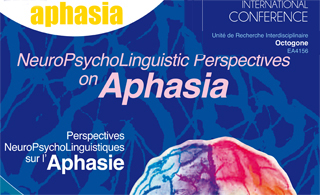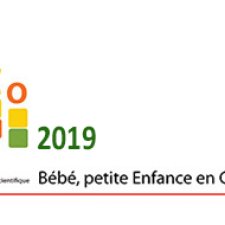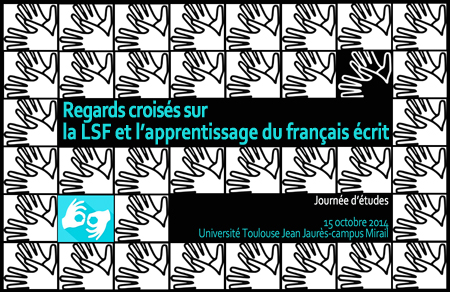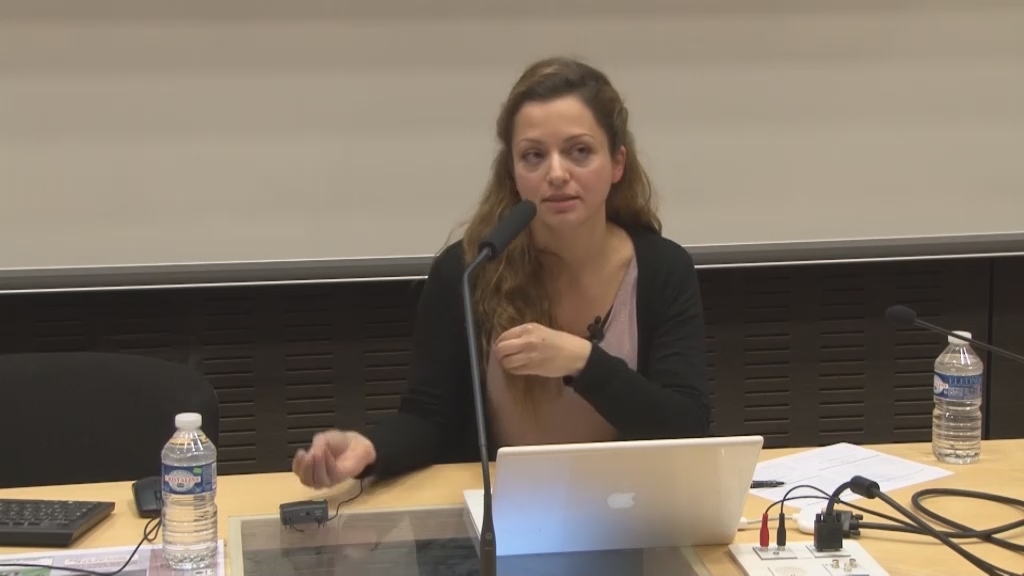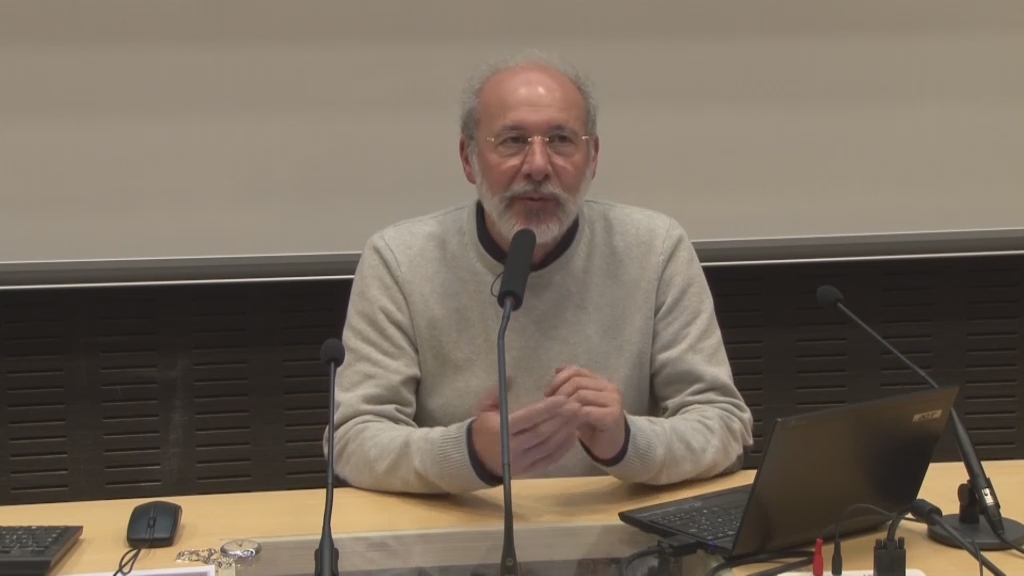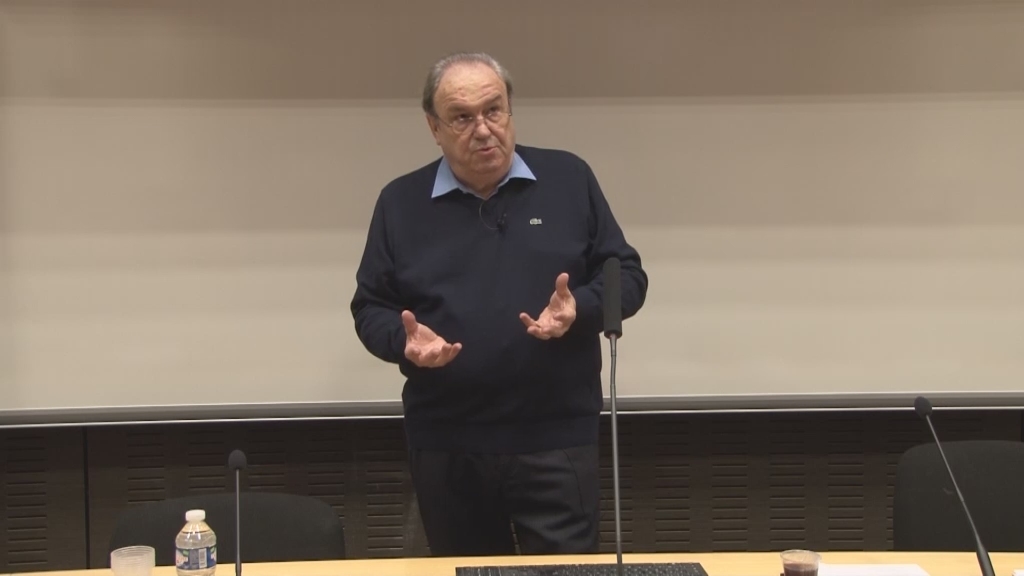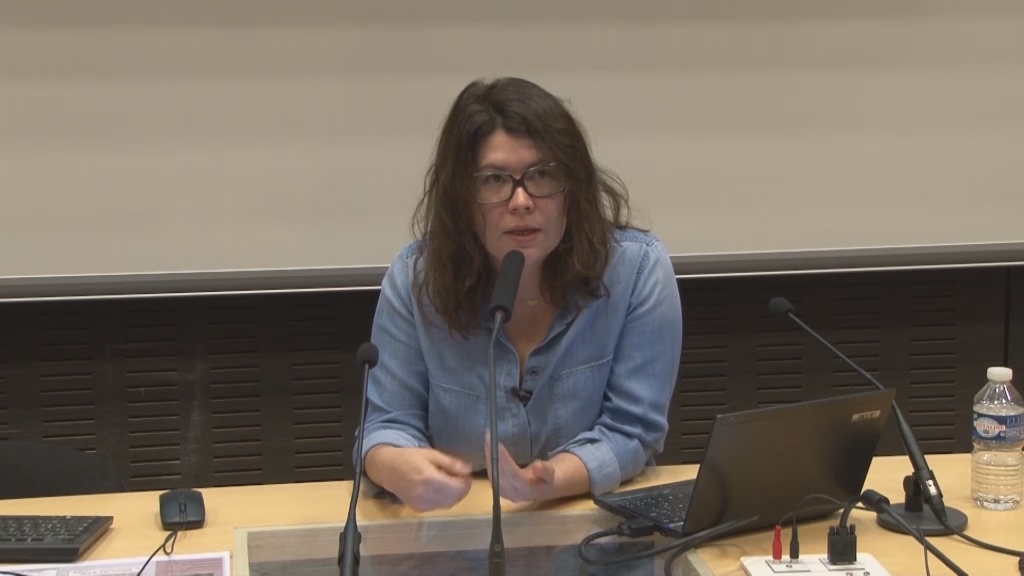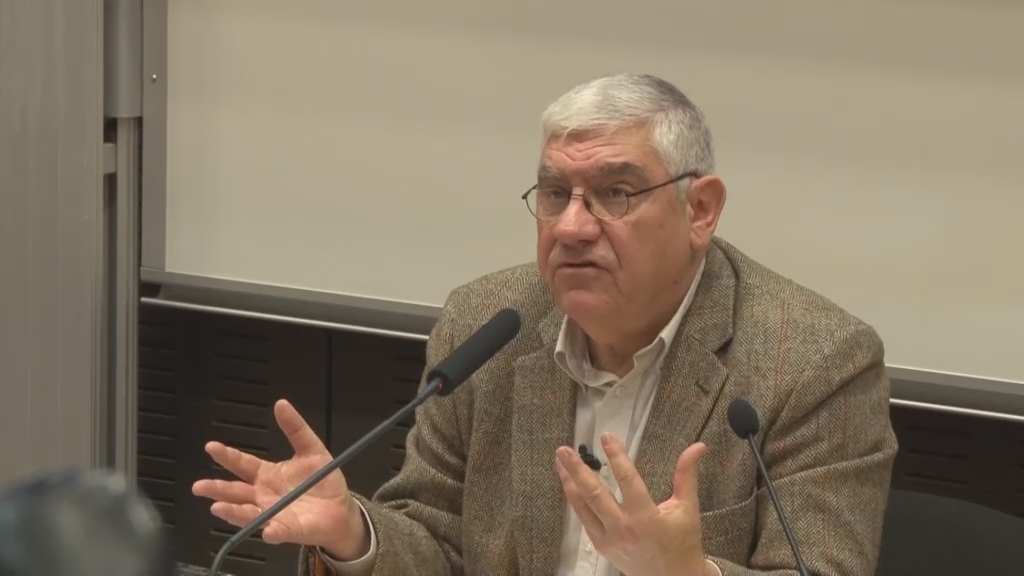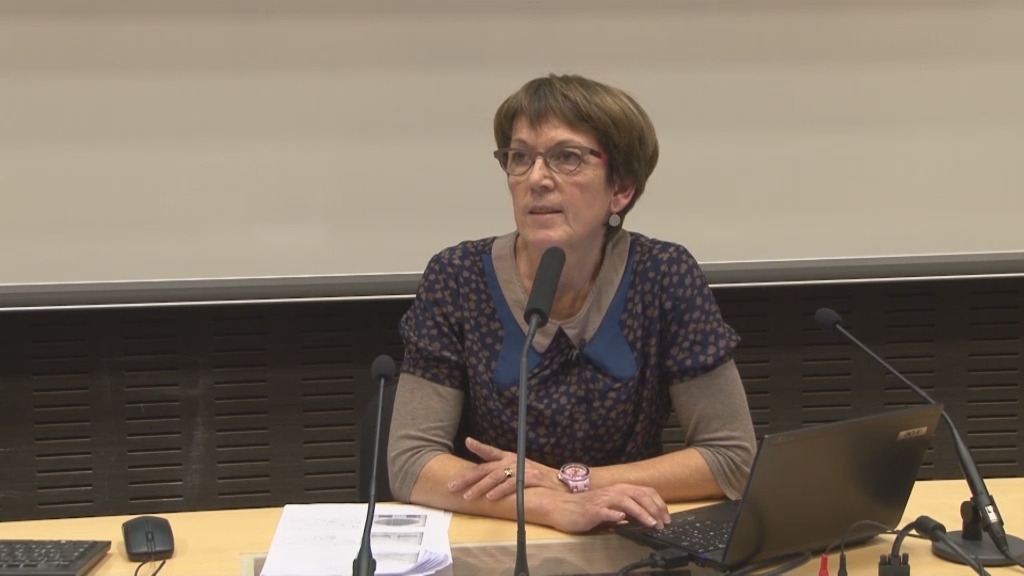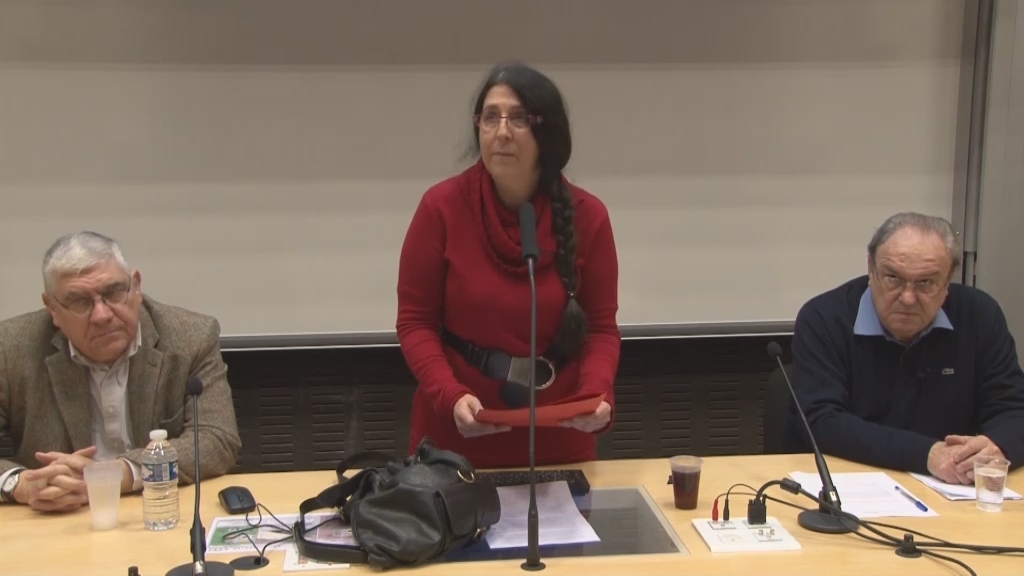Notice
Violating canonicity in Spanish agrammatism / Silvia Martínez-Ferreiro
- document 1 document 2 document 3
- niveau 1 niveau 2 niveau 3
Descriptif
Violating canonicity in Spanish agrammatism / Silvia Martínez-Ferreiro. In "Perspectives neuropsycholinguistiques sur l'aphasie - NeuroPsychoLinguistic Perspectives on Aphasia", colloque international organisé par l'Unité de Recherche Interdisciplinaire Octogone de l'Université Toulouse II-Le Mirail (France). Toulouse, 21-23 juin 2012.
The present contributions aims at unravelling the repercussions of constructions that do not correspond to the Subject (agent)–Verb–Object (patient) pattern in the performance of mildSpanish agrammatic subjects. To fulfil this aim, experiments analysing unaccusatives and psych verbs, passives, and interrogatives are reviewed to purse a unified explanation.
Production of unergatives, unaccusatives and verbs of alternating transitivity in 6 agrammatic subjects reveal that unergatives are the better preserved entries (naming: 63.3% correct; sentence completion: 56.7% correct), being unaccusatives the more severely affected group (naming: 37.6% correct; sentence completion: 28.7% correct). In comprehension of alternating verbs, the transitive reading was easier (84.4% correct) while the intransitive reading was only identified at chance level (Martínez-Ferreiro et al. 2011).
The results confirm previous studies in Spanish unaccusatives indicating low percentages of correct responses in the production of these forms (48.7%) (Sánchez Alonso et al.(2011).
The results of an elicitation task and a forced-choice task to assess production and comprehension of psych verbs in 5 mild agrammatic subjects (Martínez-Ferreiro etal. 2011) show that, even if comprehension is better preserved than production, the pattern of errors is constant across modalities. In production, transitives and alternating constructions are impaired 42.4% of the time vs. 88.2% for intransitive entries. In comprehension, intransitives also appear as the more severely affected group (62% errors) while patients performed better for both the transitive (20% errors) and the alternating conditions (14% errors). The results from 6 mild agrammatic subjects in an auditory sentence-picture matching task aimed to test reversible passives show that actives are better preserved (71.7% correct) than passives, that were identified slightly above chance level (55% correct) (SánchezAlonso et al. 2011).
Martínez-Ferreiro (2010) includes results of an elicitation and a sentence-picturematching task run to assess the production of yes/no and wh-questions, and wh-comprehension in 5 Spanish mild agrammatics. Production results show 52.31% sparement for wh- (34/65) and 80% sparement for yes/no questions (48/60) and a preference for substitution by yes/no questions (15/38 errors) in the case of wh- and by declaratives (7/12) in yes/no questions. In the sentence-picture matching task judging the comprehension of subject/object questions with animate subjects and wh-words, subjects performed virtually perfect (6.1% errors for wh-questions; 3.3% errors for wh-words). Additionally, the results of the yes-no question production task reveal that correct yes/no questions including an overt subject preceding the verb were 96.4%, indicating a tendency towards the avoidance of VOS structures.
The overall results show that, despite the wide margin of variation in constituent ordering allowed by Spanish, the violation of the SVO or the agent-patient pattern leads to high error rates in all the tested constructions, thus confirming the role of movement as a predictor ofthe deficit across constructions.
Thème
Documentation
Bibliographie sélective
Martínez-Ferreiro, S. (2010) The cartography of Ibero-Romance agrammatic deficits. Biolinguistics, 4.4, 324-355.
Martínez-Ferreiro, S., Bachrach, A., & Picallo, M.C. (2011a) Psych verbs in Spanish agrammatism. Montreal : Academy of Aphasia.
Martínez-Ferreiro, S., Sánchez Alonso, S., & Bachrach, A. (2011b) Unaccusativity in agrammatic Broca’s aphasia: evidence from Spanish. 10th International symposium of psycholinguistics. Donostia.
Sánchez Alonso, S., Martínez-Ferreiro, S., & Bachrach, A. (2011a) Production and comprehension of unaccusative verbs in Spanish: evidence from agrammatic aphasia. 32nd TABU Dag 2011. The Netherlands.
Sánchez Alonso, S., Martínez-Ferreiro, S., & Bastiaanse, R. (2011b) Clitics in Spanish Agrammatic Aphasia: A study of the production of Unaccusative, Reflexive and Object Clitics. In I. Hendrickx, S. Lalitha Devi, A. Branco & R. Mitkov (Eds.), Anaphora Processing and Applications, DAARC 2011 Revised Selected Papers (pp. 184-197). Berlin: Springer–Verlag.
> Voir aussi la bibliographie générale à télécharger dans l'onglet "Documents" de la séquence vidéo d'ouverture du colloque.
Dans la même collection
-
Perspectives neuropsycholinguistiques sur l'aphasie - NeuroPsychoLinguistic Perspectives on Aphasia…
Perspectives neuropsycholinguistiques sur l'aphasie - NeuroPsychoLinguistic Perspectives on Aphasia : ouverture. Colloque international organisé par l'Unité de Recherche Interdisciplinaire Octogone de
-
Phonological and phonetic encoding and impairment / Marina Laganaro
LaganaroMarinaPhonological and phonetic encoding and impairment / Marina Laganaro
-
A « subtle phonetic deficit » in fluent aphasia ? An acoustic and perceptual study / Anna Marczyck
MarczyckAnnaA « subtle phonetic deficit » in fluent aphasia ? An acoustic and perceptual study / Anna Marczyck
-
Entre dysfonctionnement et normalité : une perspective à partir de données anatomo‐fonctionnelles o…
DuboisCyril Michel RobertLahyaniSaoussanEntre dysfonctionnement et normalité : une perspective à partir de données anatomo‐fonctionnelles obtenues auprès de sujets sains et de sujets aphasiques / Saoussan Lahyani, Cyril Dubois. In
-
Pour une approche dynamique des réponses aphasiques obtenues en dénomination d’images : apport de l…
TranThi MaiPour une approche dynamique des réponses aphasiques obtenues en dénomination d’images : apport de l’analyse qualitative / Thi-Mai Tran, in "Perspectives neuropsycholinguistiques sur l'aphasie -
-
Age of acquisition affects word retrieval in spontaneous speech produced by patients with Alzheimer…
GayraudFrédériqueBarkatMélissaAge of acquisition affects word retrieval in spontaneous speech produced by patients with Alzheimer's disease / Frédérique Gayraud, Mélissa Barkat-Defradas. In "Perspectives neuropsycholinguistiques
-
Compounding and lexical recursion in aphasia and in Alzheimer’s disease / Zoltán Bánréti
BánrétiZoltánCompounding and lexical recursion in aphasia and in Alzheimer’s disease / Zoltán Bánréti. In "Perspectives neuropsycholinguistiques sur l'aphasie - NeuroPsychoLinguistic Perspectives on Aphasia",
-
Morpho-syntactic processing of regular and irregular formations in Arabic aphasia / Tariq Khwaileh
KhwailehTariqMorpho-syntactic processing of regular and irregular formations in Arabic aphasia / Tariq Khwaileh. In "Perspectives neuropsycholinguistiques sur l'aphasie - NeuroPsychoLinguistic Perspectives on
-
German Broca’s and Wernicke’s aphasics display similar deficits in syntactic performance / Eva Wimm…
WimmerEvaGerman Broca’s and Wernicke’s aphasics display similar deficits in syntactic performance / Eva Wimmer. In "Perspectives neuropsycholinguistiques sur l'aphasie - NeuroPsychoLinguistic Perspectives on
-
Sentence comprehension deficits in aphasia : additional insights from impairment-specific assessmen…
HanneSandraSentence comprehension deficits in aphasia : additional insights from impairment-specific assessment / Sandra Hanne.
-
Principles of bilingual aphasia assessment and interpretation of findings / Michel Paradis
ParadisMichelPrinciples of bilingual aphasia assessment and interpretation of findings / Michel Paradis. In "Perspectives neuropsycholinguistiques sur l'aphasie - NeuroPsychoLinguistic Perspectives on Aphasia",
-
Perioperative language assessment in multilingual patients undergoing awake surgery / Barbara Köpke
KöpkeBarbaraPerioperative language assessment in multilingual patients undergoing awake surgery / Barbara Köpke. In "Perspectives neuropsycholinguistiques sur l'aphasie - NeuroPsychoLinguistic Perspectives on
Sur le même thème
-
How prosody helps infants and children to break into communication
GervainJuditThe talk will present four sets of studies with young infants and children to show who prosody helps them learn about different aspects of language, from learning basic word order through
-
"Déficit phonético-phonologique dans l’aphasie vasculaire : Réflexion sur le rôle des structures sy…
Les locuteurs ayant subi un AVC entrainant une aphasie avec deficit (phonetico-)phonologique realisent, en production orale, des paraphasies qui alterent soit la structure syllabique de leur langue
-
Socialisations langagières et inégalités scolaires / Élisabeth Bautier
BautierÉlisabethSous-tendue par la question des inégalités d’apprentissage scolaires et des habitudes langagières de l’école qui sont au cœur de ces inégalités, cette communication porte sur les modes de
-
Jacques Lordat (1773-1870) ou la naissance de la neuropsycholinguistique cognitive. Du vitalisme au…
NespoulousJean-LucJacques Lordat (1773-1870) a fait une exceptionnelle carrière, d’une cinquantaine d’années, à la Faculté de médecine de Montpellier, dont il fut un temps Doyen. Très tôt, il s’intéressa aux troubles
-
Regards croisés sur la LSF et l'apprentissage du français écrit : table ronde
Garcia-DebancClaudineRegards croisés sur la LSF et l'apprentissage du français écrit : table ronde, in Journée d'études organisée conjointement par l'École supérieure du professorat et de l'éducation (ESPE, Toulouse), le
-
04 - Langage et représentation spatiale chez des locuteurs avec et sans agrammatisme : analyse des …
Journée d’étude : "Cerveau et Langage", présentée par Jacques FRANCOIS (Université de Caen) et Jean-Luc NESPOULOUS (Toulouse 2 et I.U.F.)
-
07 - Langage et mémoire : les leçons des maladies dégénératives (Crisco)
NespoulousJean-LucFrançoisJacquesJournée d’étude : "Cerveau et Langage", présentée par Jacques FRANCOIS (Université de Caen) et Jean-Luc NESPOULOUS (Toulouse 2 et I.U.F.)
-
02 - La neuropsycholinguistique 150 ans après Paul Broca (Crisco)
Journée d’étude : "Cerveau et Langage", présentée par Jacques FRANCOIS (Université de Caen) et Jean-Luc NESPOULOUS (Toulouse 2 et I.U.F.)
-
05 - Mémoire de travail, fonctions exécutives et aphasie (Crisco)
Journée d’étude : "Cerveau et Langage", présentée par Jacques FRANCOIS (Université de Caen) et Jean-Luc NESPOULOUS (Toulouse 2 et I.U.F.)
-
03 - L’émergence et l’évolution du langage humain du point de vue des neurosciences (Crisco)
Journée d’étude : "Cerveau et Langage", présentée par Jacques FRANCOIS (Université de Caen) et Jean-Luc NESPOULOUS (Toulouse 2 et I.U.F.)
-
06 - Troubles lexico-sémantiques dans l’aphasie : évolution des interprétations (Crisco)
Journée d’étude : "Cerveau et Langage"
-
01 - Ouverture de la journée d'étude : "Cerveau et Langage" (Crisco)
Journée d’étude : "Cerveau et Langage"

